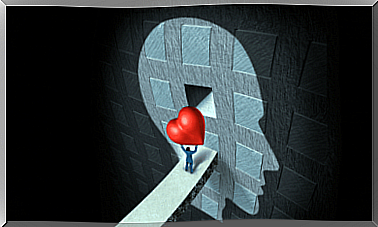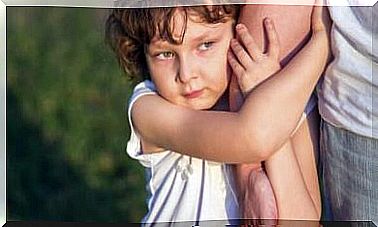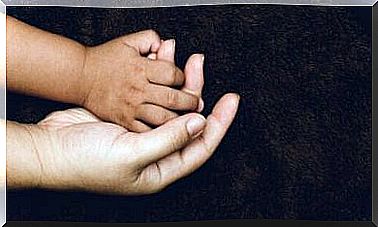Hypersomnia: Symptoms And Treatments
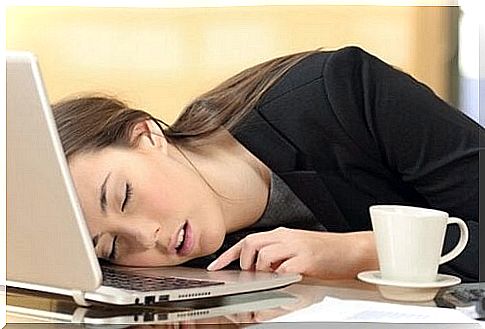
We’ve all had the experience of getting more than enough sleep and still waking up tired. However, if you were so tired for the rest of the day that you could hardly stand up, you may be suffering from hypersomnia.
We can divide sleep-wake disorders into ten different groups. They include insomnia, hypersomnia, narcolepsy, respiratory disorders, circadian arrhythmias, and restless legs syndrome.
In this article, we’ll take a closer look at one of these disorders, hypersomnia. Broadly speaking, hypersomnia means that a person sleeps too much. If it bothers you, you never feel well rested and you are constantly extremely sleepy.
What are the characteristics of hypersomnia?
Hypersomnia is a broad diagnostic term. It includes symptoms of sleeping too much (for example, sleeping very long during the night or falling asleep involuntarily during the day) and unhealthy sleeping habits.
People who suffer from this disorder fall asleep quickly and have a high sleep efficiency, more than 90%. It can also be very hard for them to wake up in the morning,
They may even appear confused, combative, or ataxia just after waking up (ataxia refers to a lack of coordination between certain parts of the body). Such a slow transition from sleep to wakefulness is known as ‘sleep inertia’.
In popular parlance, sleep inertia is also referred to as sleep intoxication. It can even occur after someone has taken a nap during the day.
The person is awake, but his motor skills are worse and he may behave inappropriately. There are also often gaps in memory, spatial disorientation and dizziness.
It can take several minutes or even hours for the person to be fully awake. The persistent need for sleep can cause a person to behave in a way that they do not want at all and which they then have little or no memory of.
For example, it may be that someone suddenly finds out that he drove a few kilometers on autopilot a few minutes ago.
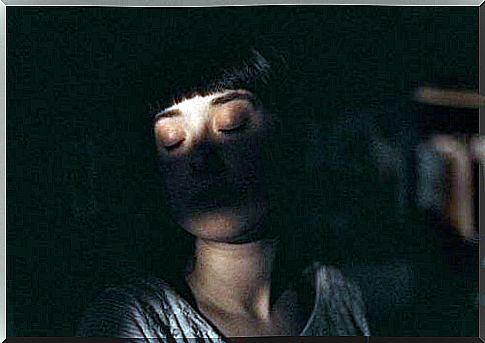
A lot of (bad) sleep
Some people with hypersomnia may need nine or more hours of sleep at night . However, this sleep is not restorative at all and it is still difficult to wake up in the morning even after nine hours of sleep .
In these cases, this extreme sleepiness often causes a person to fall asleep involuntarily several times during the day. These daily naps can be quite long (sometimes longer than an hour), but don’t make them more alert afterwards. Instead, he still feels exhausted.
These naps can occur every day, despite the fact that the person also sleeps a lot during the night. Chances are, though, that the sleep he’s getting isn’t good quality at all. No matter how many people with hypersomnia sleep, they will continue to feel sleepy. This is different from a ‘sleep attack’.
These people fall asleep involuntarily during the day when they are not stimulated or active. For example during conferences, reading a book, watching a program on TV or driving long distances.
In the most severe cases, it can even happen in situations that require a lot of attention – such as at work or during meetings or social gatherings.
What are the criteria for diagnosing hypersomnia?
According to the DSM-5, these are the criteria for diagnosing hypersomnia:
A. The person is sleepy during the day even if he has slept for seven or more hours during the night. This drowsiness is accompanied by one or more of the following symptoms:
- Recurrent episodes of sleepiness or falling asleep during the day.
- Sleeping for a long time (nine or more hours) and still not feeling rested afterwards.
- Difficulty staying fully alert after being woken up abruptly.
B. The patient has had hypersomnia at least three times a week for at least three consecutive months.
C. The patient does not feel well at all and his cognitive, social or other important functions have also deteriorated.
D. The excessive sleepiness cannot be explained by another sleep disorder and does not occur only in combination with other sleep disorders (narcolepsy, parasomnia, etc.).
E. The problem cannot be attributed to the physiological effects of a particular substance (drugs, alcohol, drugs, etc.).
F. The combination of a mental illness and the prescribed medication cannot adequately explain the problem either.
In addition, the DSM-5 also divides hypersomnia into three categories:
- Mild: Reduced alertness during the day one to two days a week.
- Moderate: Reduced alertness during the day three to four days a week.
- Extreme: Reduced alertness during the day five to seven days a week.

Symptoms of hypersomnia
While things like poor sleep, being on autopilot, having trouble waking up, and sleep inertia aren’t necessarily uncommon, they can all be linked to other conditions like narcolepsy.
About 80% of people who suffer from hypersomnia report that their sleep is not refreshing at all. They all find it very difficult to wake up in the morning.
Sleep inertia may be less common, but it can be a very specific symptom of hypersomnia. Short naps (less than thirty minutes in length) do not help reduce sleepiness.
It may seem like people with hypersomnia are sleeping in places like waiting rooms, or maybe they are actually sleeping.
A small percentage of people who suffer from this problem have a family history of sleep problems. In addition, some of them also exhibit symptoms such as nervous system problems, headaches, peripheral vascular reactivity (as with Raynaud’s phenomenon), and fainting.
How common is hypersomnia?
About 5-10% of people who go to a sleep clinic for daytime sleep problems are diagnosed with hypersomnia. About 1% of the population in Europe and the US sometimes suffers from sleep inertia. Hypersomnia affects men and women equally.
Treatment of hypersomnia
You can treat this problem in two ways. On the one hand, you can use pharmacological treatments. A sleep specialist can prescribe medications specifically designed to help you stay awake longer.
This is always better than excessive consumption of psychoactive substances, such as coffee. Excessive intake of psychostimulants can lead to serious health and especially cardiological problems.

If you don’t want to take medication, then you should try to change your sleeping pattern. This strategy involves training yourself to control your stimuli and learning to detect when drowsiness strikes. At that point, you can do a series of exercises to keep yourself awake.
You can also use certain techniques to make it easier for yourself to focus. If these don’t work, it could indicate that you have a more serious problem with your attention.
Finally, it can also help improve your sleep hygiene. By maintaining good sleep hygiene, you create the right conditions in which you can rest well.
The guidelines for good sleep hygiene refer to environmental factors (room temperature, lighting, etc.) and digestive factors (not eating certain snacks while lying down or just before going to bed). Other guidelines refer to various rest-related factors.
That said, hypersomnia is a medical and psychological condition that should be treated as such. If, after reading this article, you strongly feel that you suffer from hypersomnia, we recommend that you consult a doctor. Remember that only a medical professional can actually give you a proper diagnosis.
